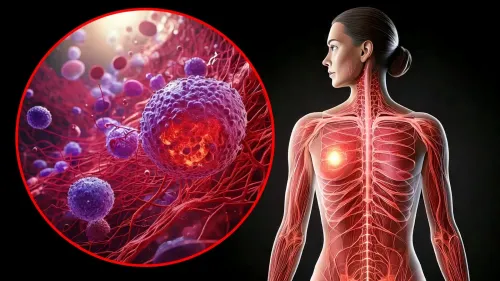Is Samsung Biologics Spinning Off Its Biosimilar Business?

Synopsis
Key Takeaways
- Samsung Biologics plans to separate its biosimilar business.
- New entity Samsung Epis Holdings will be established.
- Spinoff aims to address client concerns about conflicts of interest.
- CDMO operations will become the main focus of Samsung Biologics.
- This strategy is expected to boost competitiveness and shareholder value.
Seoul, May 22 (NationPress) Samsung Biologics, the biotechnology division of South Korea's Samsung Group, announced on Thursday its intention to separate its biosimilar development unit to enhance operational efficiency and concentrate on its primary contract development and manufacturing organization (CDMO) services.
As per a regulatory document, the firm will create a new company, Samsung Epis Holdings, which will eventually absorb Samsung Bioepis, a biosimilar drug developer, as a wholly owned subsidiary, according to the Yonhap news agency.
The spinoff will begin with the submission of a securities report on July 29, followed by a shareholders meeting on September 16 for the final nod.
Samsung Biologics clarified that this division will enable the company to allocate resources more effectively to its CDMO operations, which function on a separate revenue model compared to biosimilars.
CDMO refers to a company that manages not just the outsourced production of drug substances but also all innovation and development tasks that precede manufacturing.
The company indicated that this strategy is designed to enhance operational focus and address CDMO client concerns regarding potential conflicts of interest.
Specifically, Samsung Biologics acknowledged that some clients have expressed worries about the risk of proprietary technologies related to original drugs being disclosed to Samsung Bioepis, which works within the biosimilar sector.
"With Samsung Bioepis expanding its biosimilar operations, our clients' concerns about conflicts of interest have been on the rise, impacting our order competitiveness," stated Ryu Seung-ho, Chief Financial Officer at Samsung Biologics, during an online briefing.
"Following the separation, we anticipate that our clients' worries regarding conflicts of interest will be more effectively addressed."
Initially, Samsung Biologics formed Samsung Bioepis as a joint venture with the American pharmaceutical company Biogen in 2012. The company acquired Biogen's stake for $2.3 billion in 2022, making Bioepis a fully owned subsidiary.
Ryu also emphasized that the spinoff is not a component of a larger corporate governance overhaul within Samsung Group.
By segregating the two businesses, Samsung Biologics aims to strengthen the autonomy of both entities, enabling each to refine its strategic objectives. The firm believes this will bolster competitiveness, operational efficiency, and long-term shareholder value.
Samsung Biologics ranks among the world's top CDMO firms, reporting sales of 4.54 trillion won ($3.3 billion) and a net profit of 1 trillion won in 2024.
As of 11:37 a.m., shares of Samsung Biologics dipped by 1.36 percent to 1.08 million won ($783) following the announcement of the spinoff plan before market opening.










